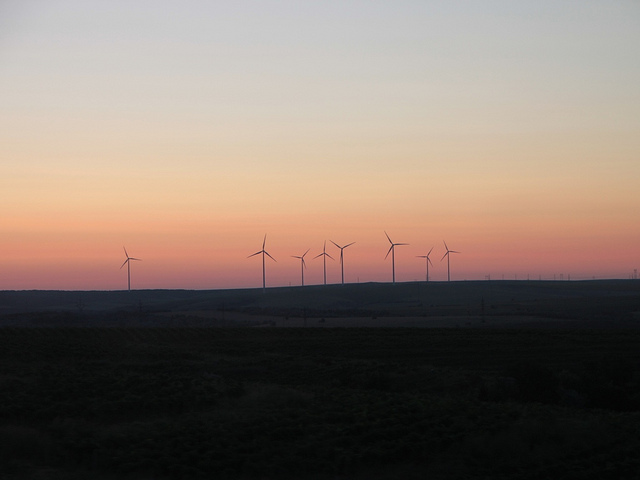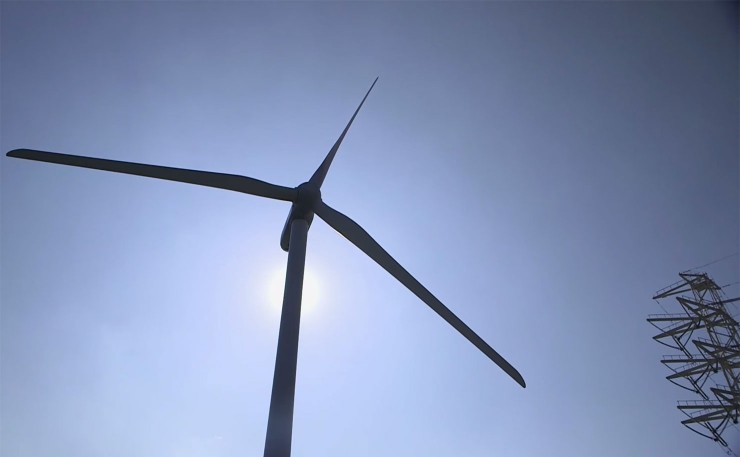A common myth is that strong action to address climate change would necessarily involve some sacrifice in our economic performance.
That idea of a trade-off between “the economy” and “the environment” makes it easy for politicians to explain why they are doing little to reduce Australia’s CO2 emissions. Economic growth has come to be accepted as one of the basic aims of government, and in the public mind it is synonymous with progress and prosperity.
But such a trade-off is not necessary: good economic management and good environmental management can (and should) align with each other, and in any case we should be wary of indicators such as growth in GDP because they do not always relate to changes in our wellbeing.
Changing The Story
When the public are conditioned to believe there is a trade-off between economic and environmental objectives, scientists and economists advocating strong action on climate change have a hard job. They must counter an image of a recessionary economy and the attendant misery of unemployment, all for the sake of some unclear benefits much later on in this century. It’s pretty tough to counter that dismal image.
Looking at the long-term it is easy to refute the idea of a trade-off.
The risks to the economy of even a two degree rise in global temperature are high, particularly in Australia – a developed country lying in low latitudes, with a large area of agriculturally marginal land, an already volatile climate, and a population clinging to the ocean.
But research in behavioural economics shows we are very much concerned with the here and now – the long-term is out in the distant never-never.
Heatwaves, dry spells, bushfires, floods and cyclones can raise public consciousness of immediate costs, but it’s also easy to attribute them to the normal vagaries of our uncertain climate. The prolonged rainfall deficiency in inland Queensland, for example, is described as a “drought” – something normal in our climate – rather than a possible harbinger of a new “normal”.
Scientists, naturally cautious, refrain from going any further than suggesting extreme weather events are “consistent with” climate change models. Such caution did not constrain Prime Minister Tony Abbott from stating that the 2013 bushfires near Sydney were “certainly not a function of climate change.” A soothing message has easier traction than one of dire warning.
Therefore the task facing scientists and independent economists is to reframe the debate. In part it is to point out that an economy/environment trade-off is a fundamental false presentation of policy options. Good economic management and good environmental management are about the same ends – putting scarce resources to their best use and avoiding waste.
That message may resonate with academics and policy advisers, but will not reach much further. The broader message has to be about economic adjustment, and how those blocking strong action on climate change, in impeding progress, are depriving us of opportunities. They are breaking with Australia’s tradition of meeting and adapting to economic challenges.
The narrative has to be about the economic transformation that effective action would involve – new solar, wind and geothermal power plants, replaced and reconditioned buildings, decommissioned coal-fired power stations, remediation of mines, new transport options ranging from subways to electric car recharge stations, and so on.
A concerted effort to address climate change would have some similarities to the wartime mobilisation in countries involved in the wars of the 1940s – a mobilisation that hauled Australia (and other countries) out of the 1930s Depression.
Of course such a mobilisation would almost certainly involve some holding back of personal consumption, as occurred in wartime. In economic terms, effort would be redirected from consumption to investment – both public and private. But, as in wartime, unemployment is unlikely to be a problem (the jobs would be far more meaningful than sewing uniforms and filling ammunition), and the boost in investment would almost certainly boost measured GDP.

And unlike wartime mobilisation the economic effort directed away from personal consumption would be directed to lasting investment rather than the production of short-lived Liberator bombers, U-Boats and Wirraway fighters. Also, wartime reduction in consumption meant deep sacrifices and austerity, but that does not have to happen when a redirection from consumption to investment is carefully managed so as to avoid hardship.
For a start there are technological improvements that can save on natural resource-intensive consumption, while actually improving consumer outcomes. An example is the continuing improvement in the electricity efficiency of household appliances. The switch from film to digital cameras is an example of a resource-saving production improvement that reduces prices while bringing new consumer benefits – think of all those chemicals and silver halide paper used in film cameras.
Other efficiencies in production such as a switch to renewable sources for electricity production may pass unnoticed by the average consumer, particularly if the cost of renewable energy technologies continues to fall. A car with half the fuel use of the one it replaces can still provide the same utility and comfort, and once electric cars achieve a range of 800 km or so they will replace and improve on all the functions enjoyed by users of present-day cars (with the possible exception of the pleasure hoons enjoy from noise and smoke). Similarly, food produced with less waste could well come at a lower cost.
Then there are efficiencies in consumption. We may find that with modest investments in insulation and a little redesign we can keep our houses just as comfortable while saving on gas and electricity. We may even learn that driving less aggressively costs nothing in time and saves hundreds of dollars a year in fuel costs.
In other words, it is possible for the money value of consumption (as measured in national accounts) to fall without any reduction in our quality of living.
These are the changes that come easily. Then there are substitutions we make as relative prices change.
Some people, pressured by rising prices of transport and heating fuels resulting from carbon pricing, may give up the lifestyle of a large house on a large suburban block and move to an apartment close to the city centre. Some will come to enjoy the change (as is happening with many young adults who are not following their parents’ suburban lifestyles), while others will regret the change.
There’s nothing new in such adaptation.
In any economy prices are constantly changing, resulting in changes in people’s consumption. Those who could afford to travel used to do so by ship; now they travel by air. Some may miss sitting in deck chairs drinking gin and tonic and having shipboard affairs, but most enjoy the convenience of flying. And few people who have given up cigarettes in response to rising prices would regret their choice.
The important point is that such changes do not necessarily make us worse off. Economists point out that because of changing relative prices, official measures of inflation (which feed in to estimates of economic growth), almost certainly overstate the extent to which these measures indicate increases in the cost of living.
GDP Growth: View With A Sceptical Eye
Official economic indicators, particularly highly-aggregated figures such as GDP, are only rough indicators of people’s wellbeing – which is why, when economists developed national accounts 80 years ago, they didn’t expect that they would assume the importance they do today.
They’re not entirely meaningless: countries with higher per-capita GDP are generally more prosperous and better places to live than those with lower-per-capita GDP. But national accounts are subject to most of the same limiting conventions as corporate accounts, and anyone observing the stock market will know that book values of corporate assets and profit are often way at odds with investors’ valuation. So too with national accounts.
Most notably, national accounts are subject to the “money measurement” concept. They do not pick up volunteering, caring for children and other activities where no money changes hands. Conversely, most monetised transactions boost GDP: if you have a car accident resulting in injuries and the need to replace your car, GDP will get a sizeable boost – and a higher boost if you are in a private hospital rather than a public one because the “profit” of a public hospital is counted, but the work in the public hospital is valued at cost. (That’s one reason why privatisation boosts reported GDP.)
If our cars and refrigerators become more energy efficient there’s a loss in GDP because we’re consuming less. If Australia were to expand sales and export of coal, measured GDP would rise, but if we were to place a value on the damage that coal burning has done to humanity, as reflected in an effective carbon price, we may see that every tonne of coal sold is actually detracting from our economic performance.
I am not suggesting that a transition to a low-carbon economy will be painless. (Pretending it would be painless was one of the reasons the Gillard Government’s carbon pricing never received the public support it should have.) All economic adjustment, even if it leads to better outcomes down the track, involves some pain and sacrifice.
But the suggestion that we must somehow hold back our adjustment to climate change to “save the economy” stems either from basic economic ignorance or the political influence of those who would reap short-term profits from impeding economic adjustment.
A consideration of the economic performance of the present Commonwealth Government and the influence of the coal industry on public policy suggests that both influences are at work.
Donate To New Matilda
New Matilda is a small, independent media outlet. We survive through reader contributions, and never losing a lawsuit. If you got something from this article, giving something back helps us to continue speaking truth to power. Every little bit counts.




